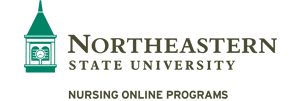The COVID-19 pandemic put a spotlight on the persistent health disparities in our society. In the case of the pandemic, the risk of getting sick and dying from COVID-19 was significantly worse for some groups of people than others, based on health inequities.
From poverty to poor air quality, health disparities exist for many reasons. Unfortunately, overcoming the underlying causes of health inequities may seem impossible. But, culturally competent nurses can be a powerful force in creating change. A Master of Science in Nursing (MSN) in Administrative Leadership in Nursing degree can prepare professionals with the necessary skills to address community health disparities in many settings and environments.
What Is Cultural Competence in Healthcare?
There is no one correct definition of “cultural competence,” which can lead to confusion with what it means to put culturally competent care into practice.
Dr. Jasmin Whitfield (RN, MSN, MPH, DNP) defines culturally competent care as “not just acquiring information on a particular group of people but rather developing a respect for and understanding that the beliefs, attitudes, behaviors, language, and rituals of that group all play a role.”
The term “cultural competence” is often used in the context of racial and ethnic minority groups. However, a broader application includes groups affected by health disparities due to disability, sexual orientation, gender orientation, socioeconomic status and geographic location.
Being a culturally competent nurse does not mean RNs must have the same cultural or language background as their patients. However, through ongoing diversity and cultural competency training, every registered nurse (RN) can develop knowledge and awareness of factors that impact health and reduce health disparities.
For example, communication is a cornerstone of nursing. Establishing culturally competent communication may begin with something as simple as asking how to pronounce a patient’s name. It also means being aware of cultural differences, such as understanding when it may be unacceptable or uncomfortable for some patients to ask questions.
What Is the Link Between Cultural Competence and Patient Outcomes?
Understanding the potential impact of culturally competent care helps to consider an RN’s everyday interactions with patients. In these interactions, nurses aim to do the following:
- Establish trusting relationships with their patients
- Assess patient concerns and conditions
- Understand the patient’s preferences regarding treatment or procedures
- Educate patients about medical issues and care plans
- Answer patients’ questions
- Provide patient education, including medication instructions
- Assure understanding with informed consent
From gaining a patient’s trust to being certain a patient understands instructions for care, it is easy to see how communication barriers can lead to adverse events such as misdiagnoses, poor medication adherence and delays in treatment. Conversely, cultural competence improves communication which, in turn, can improve patient engagement and safety.
Just as important is remembering that we are all individuals, the behaviors and values of certain cultures might not necessarily apply to all members of a particular group.
How Can Healthcare Administrators Promote Cultural Competence in Nursing?
According to a 2020 National Nursing Workforce Survey, there are nearly 4.2 million active RNs in the United States. As nursing is the largest healthcare profession, RNs are in a strong position to influence patient outcomes on a large scale.
Taking the step to earn a Master of Science in Nursing (MSN) can equip RNs with the leadership skills to drive this change. For example, Northeastern State University’s MSN in Administrative Leadership in Nursing online program offers coursework that emphasizes principles of cultural competency and leadership development at the individual and organizational levels.
Earning an MSN in administrative leadership can prepare RNs for roles such as director of nursing and chief nursing officer. These and other leadership roles offer opportunities to prioritize cultural competency using approaches such as:
- Getting to know the community through demographics such as race, ethnicity, language preference, education and income
- Providing cultural competency training that reflects the needs of the community
- Pursuing efforts to develop a more diverse nursing staff, such as through tuition assistance programs that increase access to higher levels of education
- Partnering with community organizations on initiatives to reduce health disparities, such as building community gardens in an area that lacks access to fresh produce at affordable prices
- Advocating for social policies that address root causes of communal health disparities and promote health equity
The Robert Wood Johnson Foundation describes health equity as “increasing opportunities for everyone to live the healthiest life possible, no matter who we are, where we live, or how much money we make.” By prioritizing cultural competence, RNs can be part of a solution that makes health equity a reality for their communities.
Learn more about Northeastern State University’s Master of Science in Nursing in Administrative Leadership in Nursing online program.


